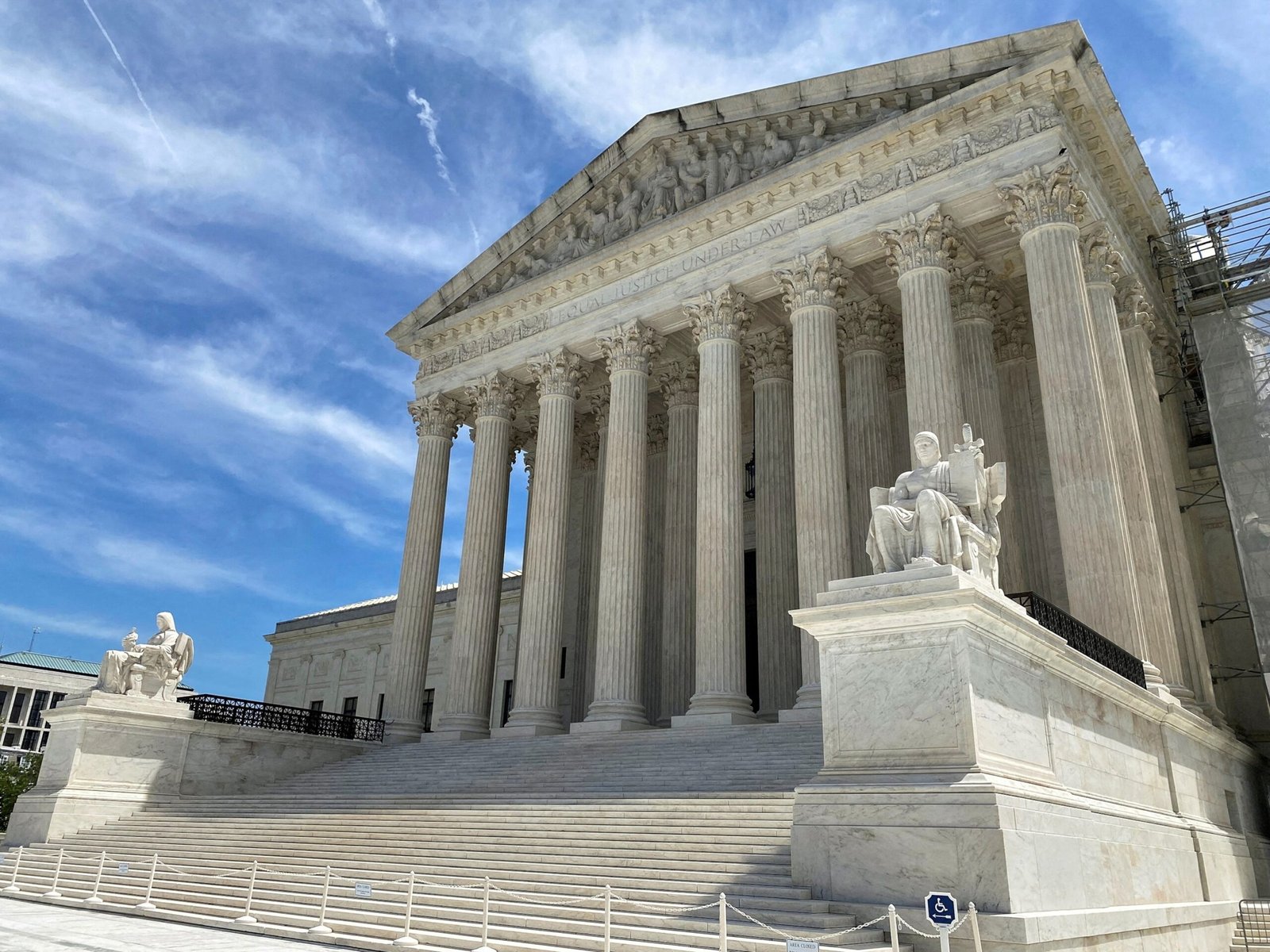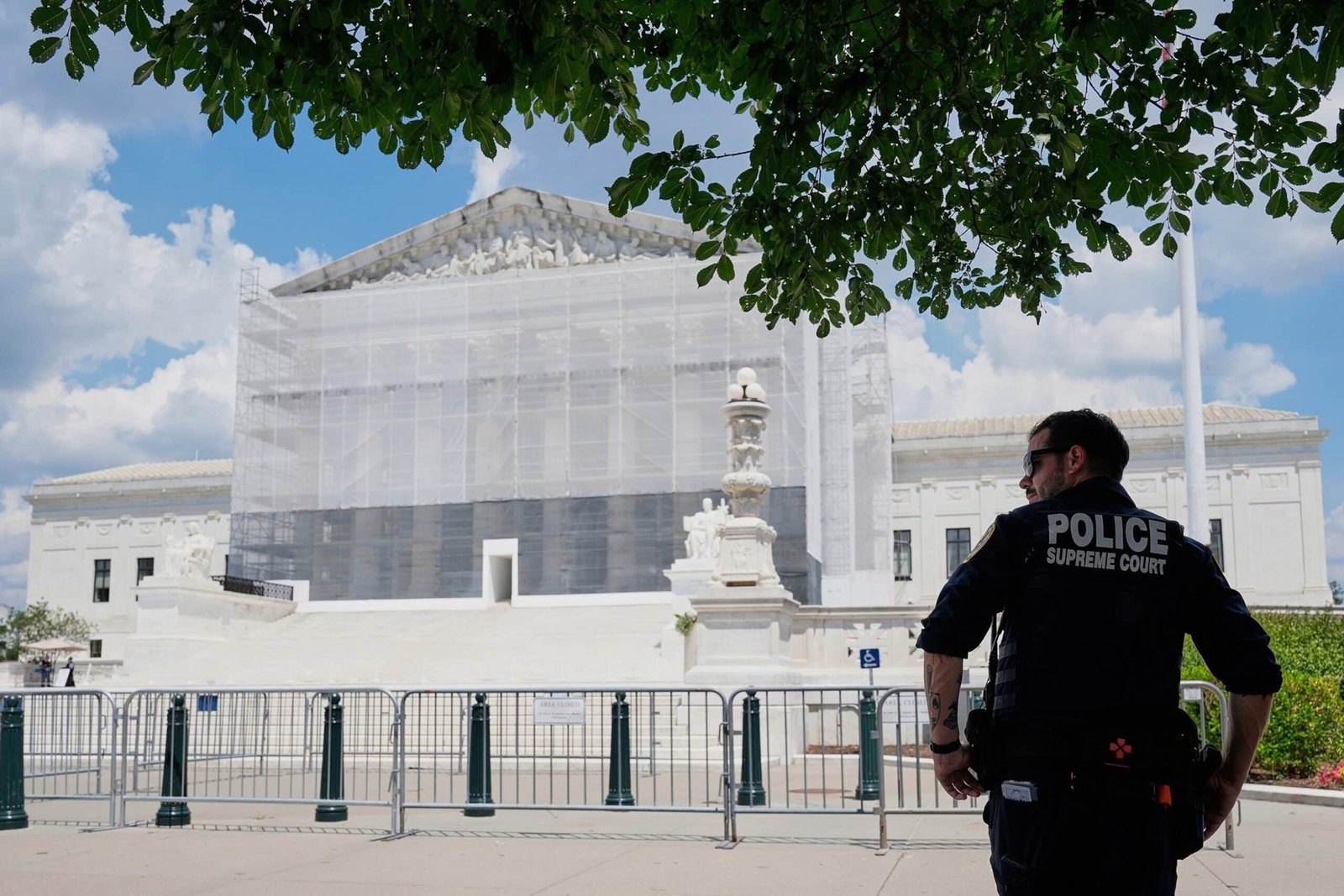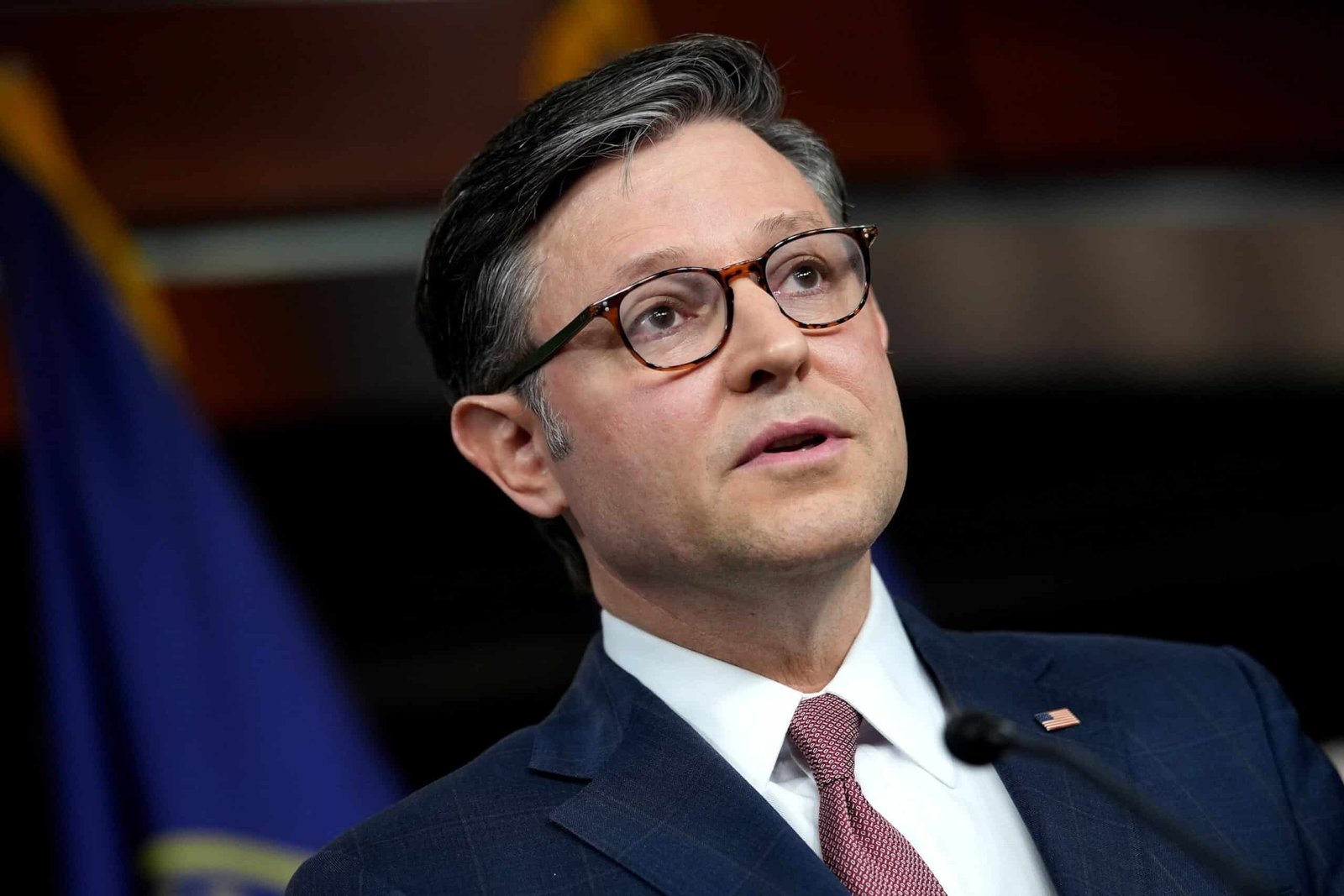The Supreme Court allows Trump to continue the faster transfer of 3rd state but Judge Boston said prisoners at Djibouti are still protected

The majority of the conservative of the Supreme Court on Monday gave a significant victory for the Trump administrative immigration policy, cleaning the road for officials to continue the deportation of migrants to the third country without the additional legal process requirements imposed by the District Court judge.
The State High Court did not explain the decision, but he said the lower court judge’s mandate would end if the administration would eventually lose the appeal of the service. Litigation is ongoing, but is expected to take years to complete it.
The Supreme Court’s orders on Monday allowed Trump’s administration to continue to make accelerated transfer from illegal dozens of immigrants to countries other than their property.
The lawsuit in the center of this case was originally submitted by immigrants who were deported to the third country without legal proceedings or at risk of being removed.
Before achieving the Supreme Court, this case had developed to cover several other migrants, including eight people, was sentenced to violent crime, which was given a notification of transfer to the East African state of South Sudan. After US Judge Brian Murphy in the Federal Court in Boston blocked the government’s efforts to deport the group to South Sudan without giving them sufficient opportunities to oppose their transfer, the group went down at Djibouti, where they remained in the military base.

The US Supreme Court Building in Washington, June 1, 2024.
Will Dunham/Reuters
In a Monday order, Murphy said eight people in Djibouti remained protected from immediate transfer despite the Supreme Court, referring to other orders he had issued last month – separated from what was detained by the Supreme Court. The verdict requires migrants in Djibouti to have a reasonable fear interview and “at least 15 days” to move to reopen the immigration process to challenge their potential to move to the third country.
Responding to Murphy’s latest order, Deputy Chief of Staff of the White House Stephen Miller said Judge Boston “refused to obey the” Supreme Court.
“Hopefully the fireworks tomorrow when we ask for the judge’s accountability because it refuses to comply with the Supreme Court,” Miller said at Fox News.
In connection with the Supreme Court’s orders, Judge Sonia Sotomayor, joined Judge Elena Kagan and Ketanji Brown Jackson, issuing differences of opinion that bites from the majority command, accusing his colleagues forgiving the behavior of “without law” by the government in “life and death issues.”
“This court is now intervening to provide government emergency assistance from orders that have been repeatedly opposed,” Sotomayor wrote. “I can’t join with a lot of misuse of a just court policy.”
“The reasonable process clause represents the principle that we are the government of law, not humans, and that we surrendered to the authorities only if based on the rules,” Sotomayor wrote. “By respecting violations of the law, the court once again damages the basic principle.”
Apparently, the court found the idea that thousands of people would suffer violence in a much better area than the possibility of remote that the district court exceeded the strength of its improvement when ordering the government to provide notification and processes carried out by the plaintiffs, with respect.
Immigrant advocates have asked judges to remain in a national order that requires “significant notice and opportunities to be heard” before someone is sent reluctantly by the US government to a country other than their birthplace or citizenship.
Trump officials have summoned the requirements ordered by the court “heavy” and illegal.
Spokesman for the Department of Domestic Security Tricia Mclaughlin said in a statement about X that the court’s decision was “a big victory for the safety and security of the American people,” added, “Turn on the deportation aircraft.”
The High Court has a unanimous voice indicating in the previous case that the potential for deportation must be given protection of legal processes. But the judges have not yet described in detail what is actually needed in each case.
The plaintiff in this case criticized the lives of the Supreme Court given and vowed to continue to fight.
“The consequences of the Supreme Court’s orders will be terrible; it eliminates the protection of critical processes that have protected our class members from torture and death,” said Trina Realmuto, Executive Director of the National Immigration Litigation Alliance. “But important, the court’s decision only questioned the court authority to pay for this protection at the intermediary stage of this case – we now need to move as quickly as possible to conclude this case and restore this protection.”






